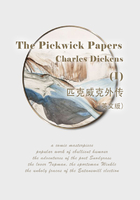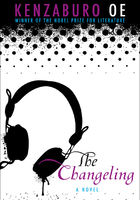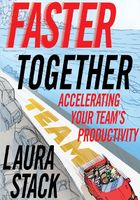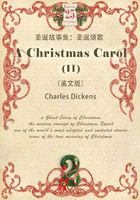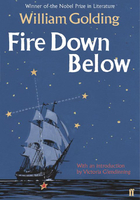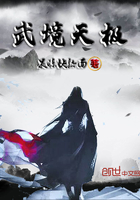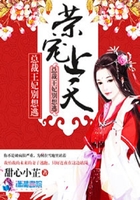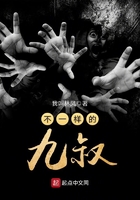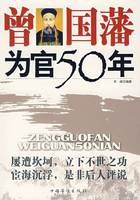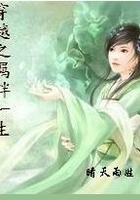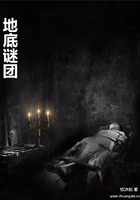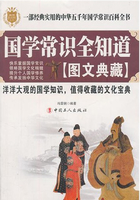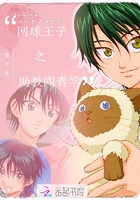Three novellas set in the irretrievable past. Clonk Clonk is a comedy which recovers for us a radically counter-intuitive primitive African society in which women amiably connive in the myth of masculinity. The male hunters in the story are necessary for procreation, but little else, since their society is amply provided for with vegetarian food sources. The women are pragmatically focused on childbirth, on biological necessity, while the men are fickle, effeminate, faintly hysterical and definitely daunted by gynaecology and female sexual mystery. Envoy Extraordinary is about premature invention-of gunpowder, of the steam engine, of the pressure cooker-rather like Kipling's story, 'The Eye of Allah', in which the microscope is discovered, only to be suppressed as premature. The Scorpion God is about a society predicated on a profound theological error, a metaphysical absurdity-in which one outsider, the Liar, is endangered by his superior knowledge. The measure of the shared short-sightedness is that they take the Liar's truths-about icebergs, about snowflakes-as titillating, as poetic or as jocose fictions, as a kind of magic realism. 'Mountains that wear a white cloak.' 'White mountains floating in water.'
In 1963, Bill Brandt photographed Alberto Giacometti's left eye, eyelid and eyebrow in black-and-white close-up. It looks like fissured mud with a few stiff dead reeds. I thought of it as I re-read the first page of The Scorpion God: 'The flocks of river birds that stood where the mud of the river bank was hard and shattered with hexagonal cracks looked colourfully at nothing. The beds of dry papyrus-slashed with the occasional stem that had bent, broken and leaned against the others-were still as reedbeds painted in a tomb, except when a seed toppled out of a dried crown…' (my italics).
The very first sentence tells us, strangely, 'There was not a crack in the sky, not a blemish on the dense blue enamel.' We wouldn't expect the sky to be cracked unless it were a work of art, a representation of reality in, say, blue faience-Egyptian faience, a ceramic with a high finish, not made of clay-like something 'painted in a tomb'.
Golding's description is not only brilliant-as always-it is also proleptic. This is a story about the Egyptian custom of surrounding mummified pharaohs with clay models of their retinue and servants, their whole way of life. You can see these charmingly detailed painted terra-cotta Playpeople in the Egyptian Museum at Cairo. In his story, however, Golding proposes something more chilling-the entombment of actual retainers, not their miniaturised models. Real life has to enter the tomb-as a replica of itself. The hypothesis is more likely if actual reality is already like a work of art-a still life, a nature morte, already a representation of itself. It is already halfway there.
I also thought of Brandt's photograph of Giacometti's eye because it is the perfect image for a technique crucial to Golding's art-the technique of rigorously occluded close-up. So much of Golding's greatest work depends on the severely restricted view, the idea of confinement, of solipsism. Think of the unexpected long shot at the close of Lord of the Flies in which we suddenly see the murderous, cruel Jack as 'a little boy who wore the remains of an extraordinary black cap on his red hair and who carried the remains of a pair of spectacles at his waist'. A little boy. Suddenly, the 'true' perspective, a different scale-no longer in frightening close-up. Think of The Spire and the way Golding locks his narrative into the consciousness of Jocelin, the way everything is focalised from his viewpoint. Think of Pincher Martin and the way we share Pincher's deluded fight for survival, immersed in a subjective extended struggle that actually lasts for only a few moments on a different, 'true' scale.
Scale: consider that seed toppling out of a dried crown. The verb is exceptional, a great alteration of scale, like Robert Frost's 'sturdy seedling with arched body' (in 'Putting in the Seed')-'Shouldering its way and shedding the earth crumbs.' Only large things can be toppled-kings, governments, temples, pillars, slabs of stone. You can't topple a crumb off a tablecloth. So, when a seed topples from a crown, the reader succumbs to Golding's imperious magnification. We can't get far enough back, far enough away, to see things as they actually are.
And this is Golding's point. In these three historical novellas-one set in ancient Egypt, one in primitive Africa, one in ancient Rome-he is concerned to enforce the qualia of history, to bring the picture to painful life, to animate the long ago, to make us taste the tannins, experience the enzymes of a vanished time. He rubs our noses in it. Until, at last, he pulls back and allows us to lift our gaze. The Liar's contemptuous epitome: 'A patch of land no bigger than a farm-a handful of apes left high and dry by the tide of men.' Or the long view at the end of Clonk Clonk: 'The mountain did not erupt for a hundred thousand years; and though the eruption overwhelmed the spa that had grown up round the Hot Springs, by that time there were plenty of people in other places, so it was a small matter.'
Henry James didn't believe in historical fiction. On 5 October 1901, he writes to his friend, the historical novelist, Sarah Orne Jewett: 'You may multiply the little facts that can be got from pictures & documents, relics & prints, as much as you like-the real thing is almost impossible to do, & in its absence the whole effect is as nought; I mean the invention, the representation of the old consciousness, the soul, the sense, the horizon, the vision of individuals in whose minds half the things that make ours, that make the modern world were non-existent.' This is the crux of James's objection-that the past is another planet where people think differently. 'You have to think [i.e. invent] with your modern apparatus a man, a woman,-or rather fifty-whose own thinking was intensely-otherwise conditioned.' James's argument seems plausible.
Except that Golding's speciality is the very area deemed 'impossible' by Henry James-lost ways of thinking, lost ways of feeling, the whole atrophied consciousness of the past. He is an archeologist of the mind's ruined circuits.
So how plausible is James's hypothesis? Robert Browning's Duke in 'My Last Duchess', for example, is a Renaissance aristocrat, so confident of his breeding and unassailable status that he can tell an envoy, in his court to arrange a marriage, that he, the Duke, has had his previous wife murdered-for seeming to stoop, for being friendly, for being insufficiently haughty. It isn't an obviously modern democratic cast of mind. He isn't, however, a freak. Strangely, we understand him. Browning gets inside him imaginatively. And, if the Duke is extreme, he isn't unknown, or off the human spectrum. At the conclusion of the poem, he draws the attention of the envoy to a piece of sculpture, Neptune taming sea-horses, cast in bronze by Claus of Innsbruck. It is an emblem of absolute power. It is also a paradox the twentieth century is familiar with-the conjunction of aesthetic connoisseurship with affectless cruelty. Who was it pointed out the proximity of Goethe's Weimar court to the concentration camp at Buchenwald? In Steven Spielberg's film Schindler's List, we were given the Hollywood version as two German soldiers paused in their search of the Lodz ghetto to play Schubert on a piano.
Henry James (like Jonathan Franzen in his commencement address to Kenyon College in 2011) believes that inventions, technological advances, improved transport and infrastructure, the BlackBerry, the typewriter, the word-processor, as it were-what Matthew Arnold dismissed as mere externals, as 'machinery'-will change the ways we think. In trivial ways, they will. Fundamentally, however, human beings remain unchanged. When the anthropologist Paul Ekman went in the late fifties to the isolated stone-age Highlanders of New Guinea, he discovered they could recognise the emotions expressed in photographs of contemporary Americans. They were able to make up stories about them. Without this shared pool of unaltered, unalterable feelings, we would not be able to understand the literature of the past.
The Scorpion God, the great masterpiece of these three novellas, shows us that human nature is unchanging even under an imperious theological construct. For example, incest between father and daughter, between daughter and brother, is seen as proper, as right. In this bizarre society, where sex between unrelated strangers is seen as a perversion, nature nevertheless asserts itself. The very idea of sex between strangers is exciting and arousing. As Pretty Flower explains to the Head Man, the sense of transgression adds edge to the sexual act.
Nevertheless, for practically the whole of this novella Golding emphasises the differences, maximises the apparently insuperable barriers between this primitive society and our own. T. S. Eliot in his introduction to Kipling's verse says that Kipling interests him because Kipling's mind is so very different from his own. Different, yes; unintelligible, no. How is it achieved, this simultaneous assertion of radical difference and essential identity? In Browning's case, he invents idiolects for his historical characters. The physician Karshish is given a medical inflection to his thought and speech. Fra Lippo Lippi's monologue is garnished with archaic exuberances-'zooks' and so forth. This is partly Golding's method, too. In Clonk Clonk, the Skywoman (aka the moon) is a convincing inflection of normality. The idea of 'the Now' in The Scorpion God-an eternal fixity or an anxious flux-is idiosyncratic shorthand, an abbreviated idiolect for a whole community's peculiar thought processes. And a brilliant invention.
In Borges's story 'Tl?n, Uqbar, Orbis Tertius', the inhabitants of Tl?n all believe the material world disappears when no one is perceiving it. When an ur-materialist tries to articulate the idea that reality survives even if it is not perceived, Borges wonderfully, exactly captures the difficulty of articulating, of thinking through a new idea. This is the parable of the coins. 'On Tuesday, X crosses a deserted road and loses nine copper coins. On Thursday, Y finds in the road four coins, somewhat rusted by Wednesday's rain. On Friday, Z discovers three coins in the road. On Friday morning, X finds two coins in the corridor of his house.' From this, the continuity of the coins' existence is asserted. 'It is logical to think that they have existed-at least in some secret way, hidden from the comprehension of men-at every moment of those three periods.' The combination here-of absurdity and of wonky logic-rests on something fundamentally human, which is the difficulty of un-thinking a settled idea. Borges gives us a spare paradigm, the exposition of a concept. Golding, though, can persuade you that you are actually there. In Borges, it is an abstract, intellectual demonstration, elegant and pleasing. In Golding it is the experience itself, in 4-D. You feel it in all its claustrophobic close-up. And you know that Henry James was wrong-because every detail in Golding is imaginatively right.

